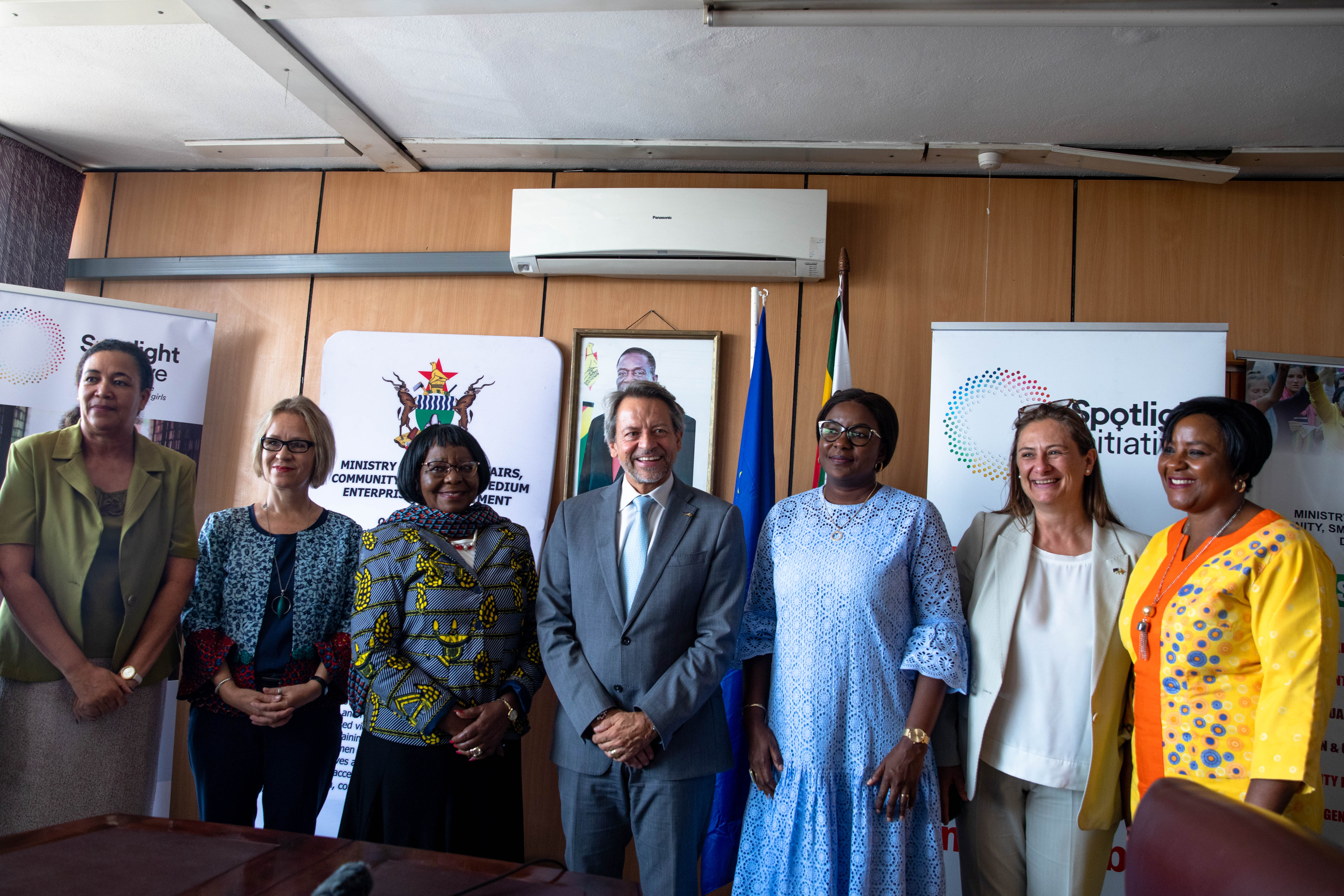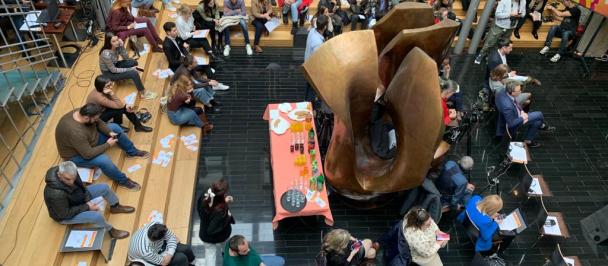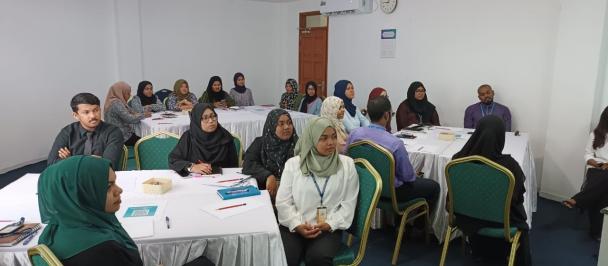Zimbabwe celebrates the first anniversary of the High-Level Political Compact on ending GBV
November 3, 2022

The 27th of October 2022 marked the 1st anniversary of the High-Level Political Compact, the compact was launched last year by the President of the Republic of Zimbabwe in partnership with, Independent Commissions, the United Nations, international development partners, the Chiefs’ Council representing traditional leaders, churches, and civil society organisations. Zimbabwe made history by becoming the 1st country under the Global Spotlight Initiative Programme to develop a multi-sectoral compact dedicated towards addressing Gender-Based Violence and harmful practice.
The High-Level Political Compact (HLPC) is a key and strategic intervention for effective response to Sexual and Reproductive Health and Rights(SRHR) /Sexual and Gender Based Violence (SGBV) /Harmful Practice issues in the country. It is a transformative initiative that seeks to enhance the national response to SGBV through a well-resourced, country led, accountable and inclusive compact.
Addressing the media at a press briefing in Harare to commemorate the 1st anniversary of the HLPC, the Honourable Minister of Women Affairs, Community, Small and Medium Enterprises Development, Dr Sthembiso Nyoni, reminded stakeholders that “the HLPC is a commitment and a call to action for all actors in the national GBV programming. The responsibilities bestowed upon each stakeholder are not for window dressing, but they are obligations that need to be taken seriously to ensure everyone play a leading role in accomplishing them”.
The first anniversary of the HLPC provides an opportunity for the Government of Zimbabwe and partners to reflect on the achievements made to date in the implementation of the HLPC and the Spotlight Initiative. In her remarks, the United Nations Development Programme (UNDP) Resident Representative, Ms Mia Seppo highlighted that “the past year has seen several noticeable gains, achievements, and success stories in addressing SGBV issues at both the national and subnational levels”.
Both the Minister and UNDP Resident Representative shared a few of the gains and achievements under the HLPC and Spotlight project. Under laws and policies, they applauded the work around the launch and rollout of the Public Service Sexual Harassment Policy, the PSC Sexual Harassment Module, and the National Strategy on women in decision making. They also acknowledged the investments that has been made towards strengthening of institutions that provide services to GBV survivors. The investment has led to the development of child and victim friendly courts, establishment of national SGBV call centres, establishment and strengthening of mobile and static one stop centres, and the installation of state-of-the-art DNA forensic lab.
Furthermore, under prevention efforts of the Spotlight Initiative, at least 8 million people were reached with critical information to raise awareness for prevention purposes, while over 2 500 women benefited from the empowerment initiatives. “The fight against SGBV can only be won when women and girls have equal access and opportunities in the social, economic and political spheres”, cited the UNDP Resident Representative.
Acknowledging the commitments made and positive steps taken by the government and partners under the HLPC, the European Union (EU) ambassador to Zimbabwe, Jobst von Kirchmann noted that, “one year later, that commitment is still firm and relentless, and the work continues on the ground with the six UN implementing agencies and Civil Society Organisations”
The ambassador also reiterated that the EU remains committed to fight GBV through financing programmes that seek to address this social ill. The EU financed the Spotlight Initiative, with Zimbabwe getting US$ 30 Million for the implementation of the programme. The ambassador cited that “but we won’t stop here. We will continue to support the efforts done by the government of Zimbabwe to achieve more gender equality and to the fight against GBV because gender equality and women’s empowerment remain a high priority for us”.
Moving forward, the government of Zimbabwe and its partners will continue implementation and monitoring of the HLPC commitments which are in line with and contribute to set goals under the National Development Strategy 1 (NDS1), national and international commitments, the 2030 Agenda for Sustainable Development, as well as Zimbabwe’s vision to become upper middle-income society by 2030. Implementation will leverage on the results achieved under the Spotlight Initiative, build on current success during the first year of the HLPC implementation, and take advantage of current momentum and political will to address GBV issues.

 Locations
Locations


